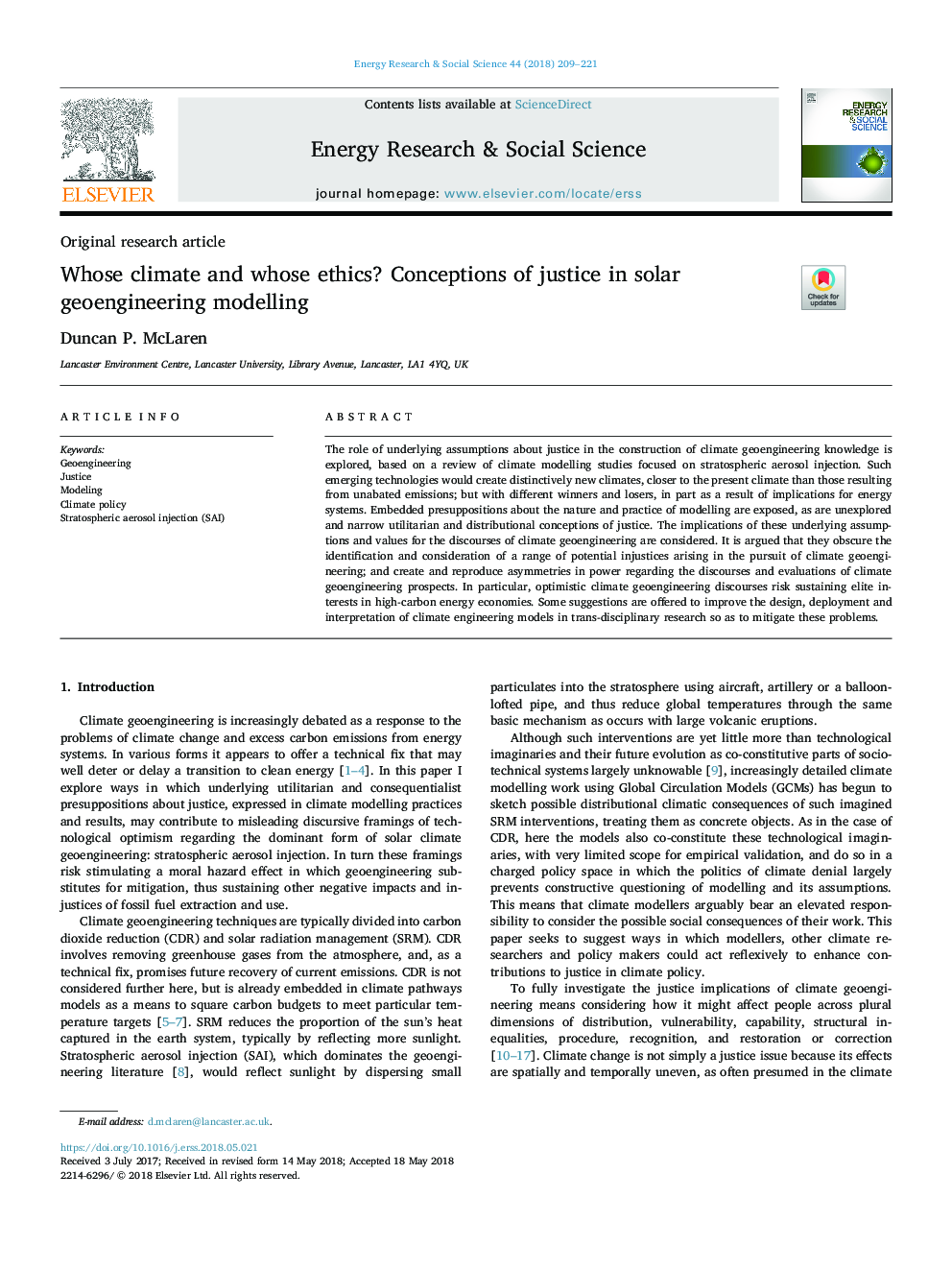| Article ID | Journal | Published Year | Pages | File Type |
|---|---|---|---|---|
| 6557213 | Energy Research & Social Science | 2018 | 13 Pages |
Abstract
The role of underlying assumptions about justice in the construction of climate geoengineering knowledge is explored, based on a review of climate modelling studies focused on stratospheric aerosol injection. Such emerging technologies would create distinctively new climates, closer to the present climate than those resulting from unabated emissions; but with different winners and losers, in part as a result of implications for energy systems. Embedded presuppositions about the nature and practice of modelling are exposed, as are unexplored and narrow utilitarian and distributional conceptions of justice. The implications of these underlying assumptions and values for the discourses of climate geoengineering are considered. It is argued that they obscure the identification and consideration of a range of potential injustices arising in the pursuit of climate geoengineering; and create and reproduce asymmetries in power regarding the discourses and evaluations of climate geoengineering prospects. In particular, optimistic climate geoengineering discourses risk sustaining elite interests in high-carbon energy economies. Some suggestions are offered to improve the design, deployment and interpretation of climate engineering models in trans-disciplinary research so as to mitigate these problems.
Related Topics
Physical Sciences and Engineering
Energy
Energy (General)
Authors
Duncan P. McLaren,
